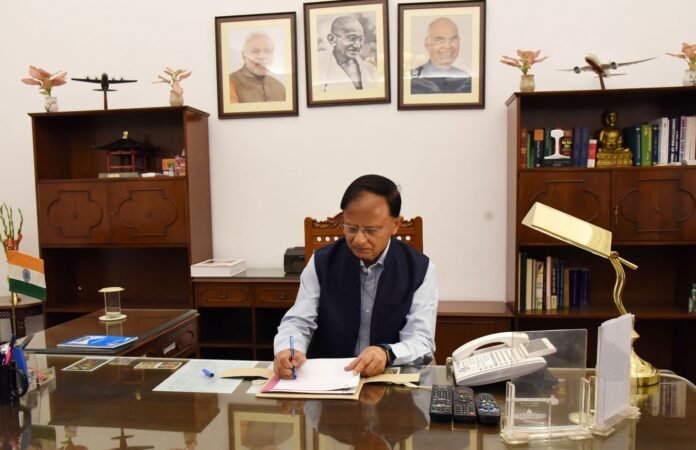In a session held in New Delhi on November 27, P.K. Mishra, the Principal Secretary to Prime Minister Narendra Modi, explained that the way modern governments function today no longer revolves around rigid hierarchies but rather on collaboration. He noted that the needs placed on civil servants have evolved from simply ticking boxes toward helping the state move quickly and decisively.
Speaking at the UPSC’s Shatabdi Sammelan, Dr Mishra pointed out that emerging technology, faster urban growth, climate‑related problems and frequent natural disasters have shifted the responsibilities of public servants. Today, governance is more about teamwork than top‑down control.
He highlighted how the focus has changed from ensuring processes are followed to actually delivering results, from making small incremental changes to pushing for rapid transformation. Similarly, the old model of isolated departments is giving way to a network of interoperable digital systems, and the government’s role is shifting from merely delivering services to truly partnering with citizens through programs like Jan Bhagidari.
According to Mishra, India is at a crossroads on its path toward a “Viksit Bharat” by 2047. The coming decades, he said, must be guided by three key ideas: reshaping the civil service to drive development and service, rethinking recruitment to find highly capable individuals, and fostering a culture of lifelong learning.
He observed that these new expectations now span nearly every sector—digital payments, social protection, health, infrastructure, logistics, skills training, taxation, urban and rural development—and are starting to touch frontier arenas where India hopes to lead, such as quantum tech, space innovation, and the blue‑green economies.
Mishra underscored the central place of civil servants in achieving a developed nation. Officers should think beyond their own domains, operate across sectors, and keep humility, integrity, and purpose at the core of their work. They must engage with data and people equally confidently, balance ethical decisions with solid administrative skills, and remain lifelong learners even as they lead.
He reflected on how the UPSC has upheld merit, fairness, excellence and integrity for a century, earning the respect of the country as one of its most reputable constitutional bodies. Mishra concluded that the event celebrates the wisdom of the Constitution’s founders and the visionaries who guided the Commission in its early years.
Stay informed on all the latest news, real-time breaking news updates, and follow all the important headlines in world News on Latest NewsX. Follow us on social media Facebook, Twitter(X), Gettr and subscribe our Youtube Channel.



